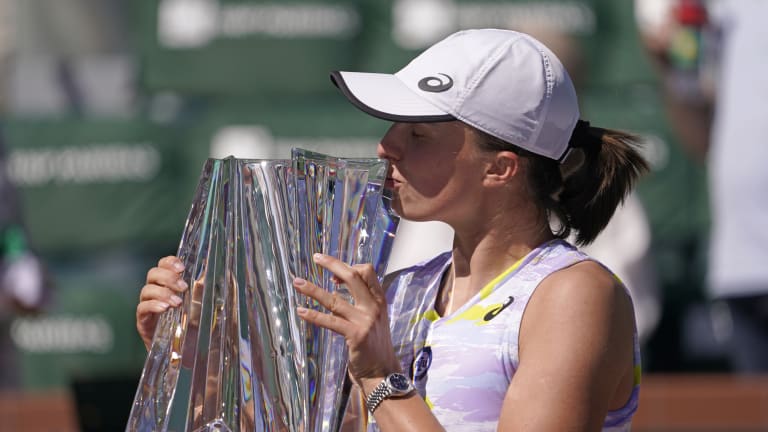Indian Wells, USA
With wind casting precision aside, Iga Swiatek adopts "winning ugly" in Indian Wells final win over Sakkari
By Mar 21, 2022Indian Wells, USA
Mackenzie McDonald is paying the college tennis experience forward with a new fund
By Mar 17, 2025Indian Wells, USA
Mirra Andreeva and Jack Draper win breakthrough titles at Indian Wells: What did we just witness?
By Mar 17, 2025Indian Wells, USA
Jack Draper's run through Indian Wells concludes with his first ATP Masters 1000 title
By Mar 16, 2025Indian Wells, USA
Holger Rune vs. Jack Draper: Where to Watch, Indian Wells Preview, Betting Odds
By Mar 16, 2025Indian Wells, USA
Holger Rune reaches first Indian Wells final over Daniil Medvedev
By Mar 15, 2025Indian Wells, USA
Mirra Andreeva vs. Aryna Sabalenka: Where to Watch, Indian Wells Preview, Betting Odds
By Mar 15, 2025Indian Wells, USA
Mirra Andreeva, 17, advances to Indian Wells final, beating Iga Swiatek in chilly conditions
By Mar 15, 2025Indian Wells, USA
Ruthless Aryna Sabalenka storms past Madison Keys, 6-0, 6-1, in semifinals of Indian Wells
By Mar 15, 2025Indian Wells, USA
Carlos Alcaraz vs. Jack Draper: Where to Watch, Indian Wells Preview, Betting Odds
By Mar 15, 2025With wind casting precision aside, Iga Swiatek adopts "winning ugly" in Indian Wells final win over Sakkari
On a Sunday that favored the returner, the 20-year-old used her footwork and forehand margin to pull away from the Greek, 6-4, 6-1, for her third WTA 1000 crown at the BNP Paribas Open.
Published Mar 21, 2022
Advertising
Advertising

Swiatek became the first Polish player to lift the Indian Wells trophy.
© Copyright 2022 The Associated Press. All rights reserved.